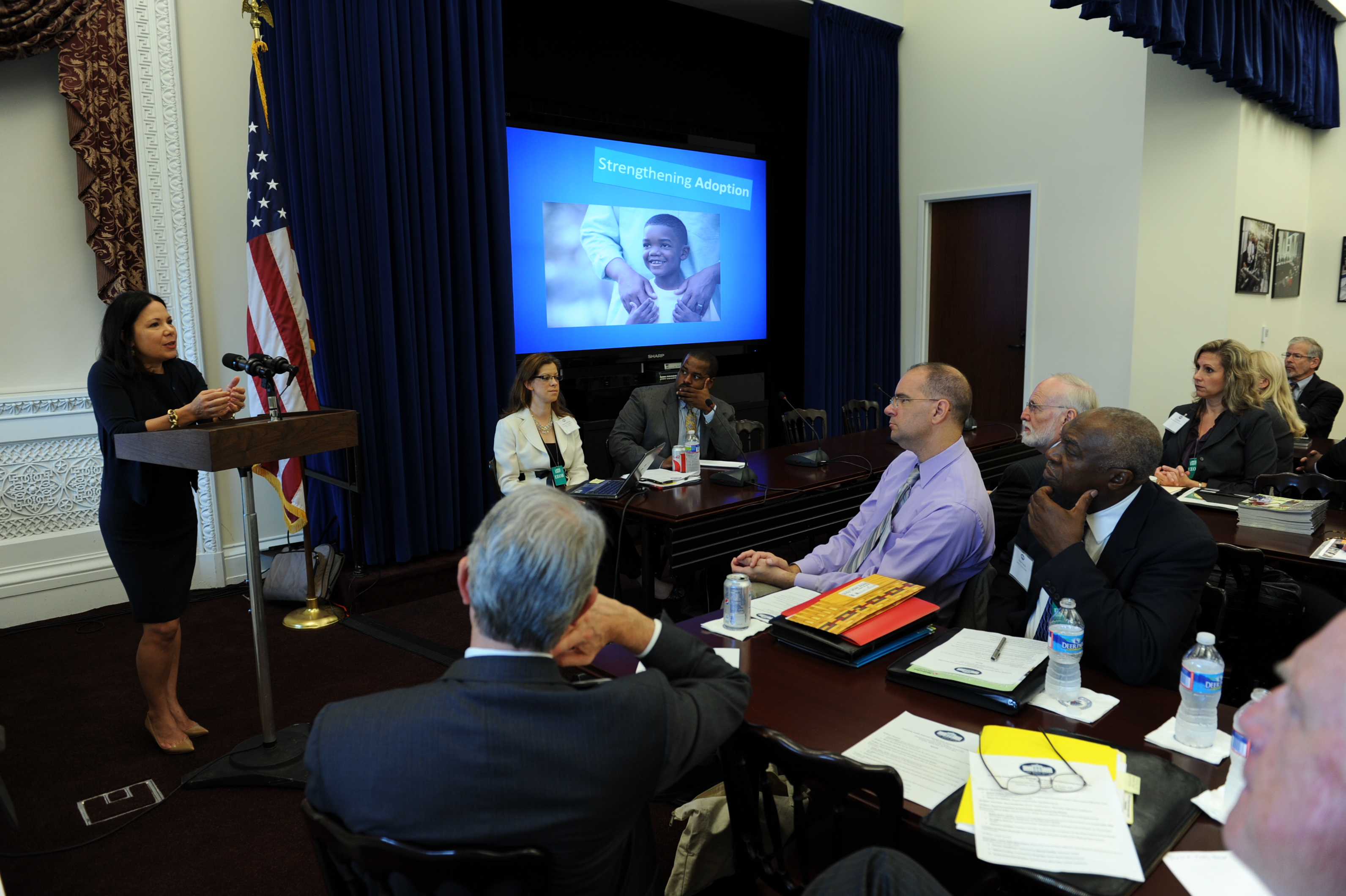
From our first trip to Memphis, Tennessee to see a faith-health partnership in action to other visits across the nation, bringing together health care leaders who are proven innovators in pursuing creative and successful public health partnerships has been a goal for our Center this year.
Along with the White House Office of Faith-Based and Neighborhood Partnerships we welcomed a group of 16 hospital CEOs and senior leadership from health care systems across the country to the White House to discuss improving health outcomes through faith-based and community partnerships. The one-day event gave attendees an opportunity to seek and share best practices on partnerships and programs that work for the good of the community.
“In addition to spiritual support, turning to faith and community leaders for health and wellness is a part of many faiths,” said Joshua DuBois, special assistant to the president and executive director of the White House Office of Faith-Based and Neighborhood Partnerships. “By linking to the strong infrastructure of congregations, hospitals and care providers are able to reach deep into hard-to-reach and underserved communities to improve the health of Americans.”
The health systems invited to the meeting are unique, as their faith-based and community partnership programs are fully implemented within rural, urban and suburban communities and demonstrate their impact on the full community.
A portion of the day’s discussion focused on new health and wellness provisions included in the Affordable Care Act. Under the new law, those with new insurance plans can get preventive services like mammograms and other cancer screenings without paying a penny out of their own pockets. By making Medicare stronger, the law delivers less expensive prescription drugs to millions of seniors and, over time, closes the donut hole and makes preventive services free for everyone with Medicare. These provisions, combined with the innovative health care being provided by the health systems in attendance, make our communities healthier.
Faith and community leaders are trusted messengers within their communities and are on the front lines of fighting many of the health care issues that are plaguing so many underserved communities. By engaging faith and community leaders in collaborative partnerships, health providers can expand health care access, monitor which best practices are working in local communities and lower costs.
Mara Vanderslice Kelly is Acting Director and Senior Advisor at the Center for Faith-Based and Neighborhood Partnerships (The Partnership Center) at the U.S. Department of Health and Human Services.


